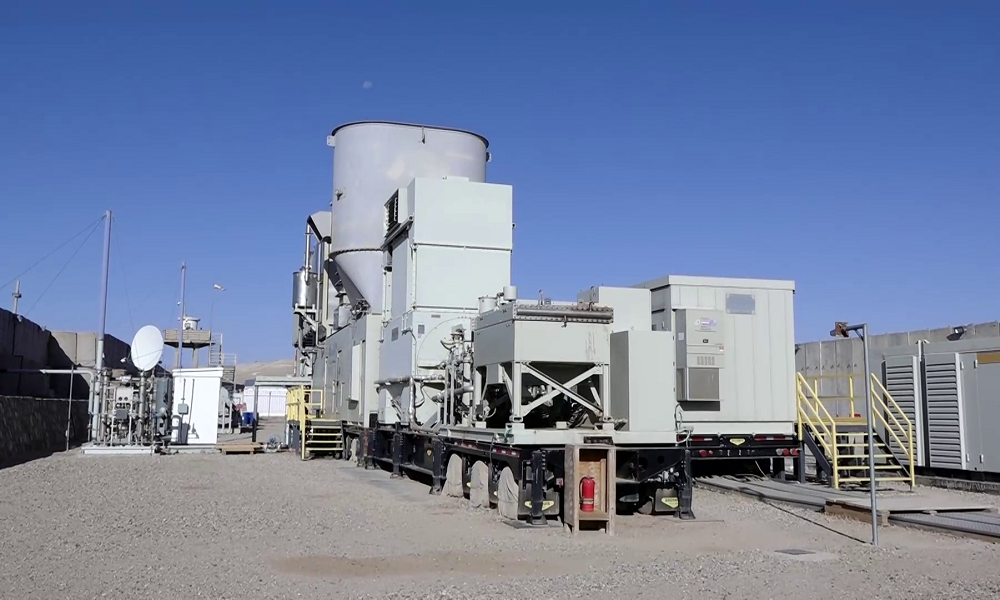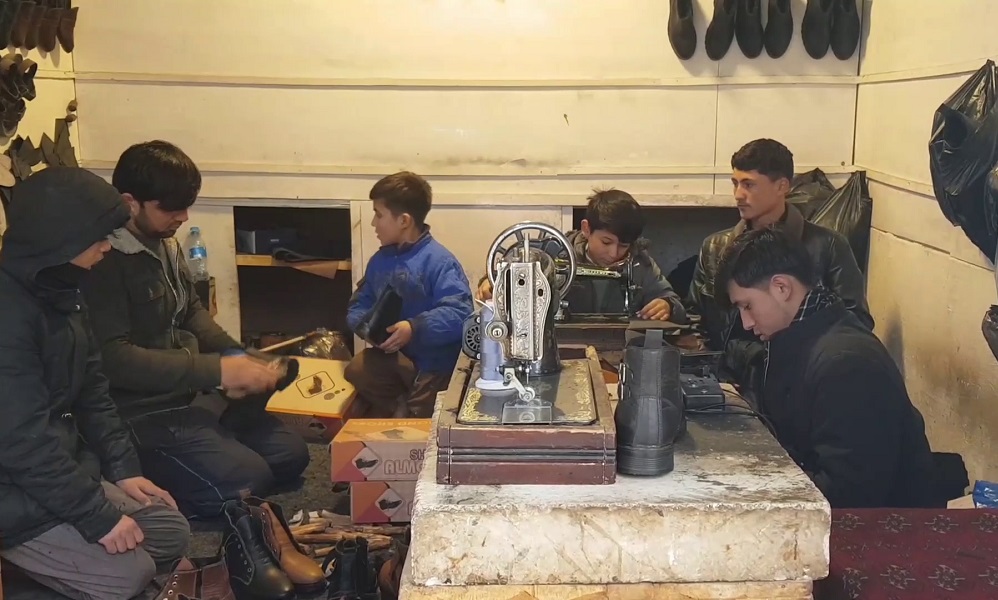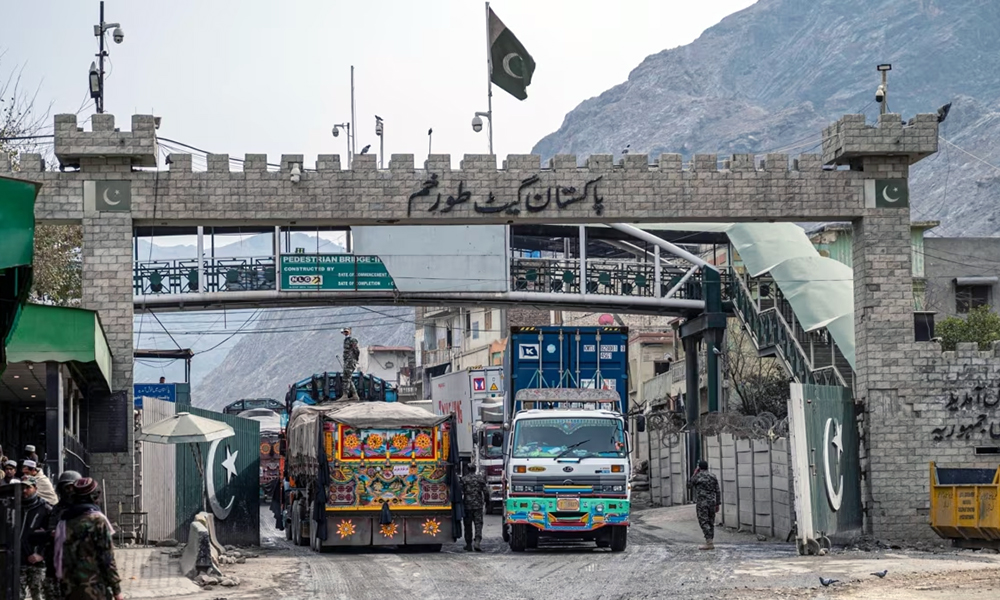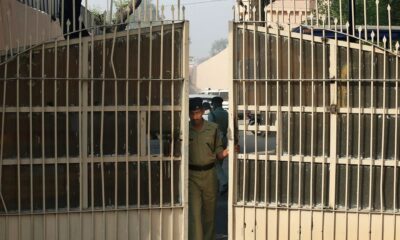Business
Bayat Power in talks with Afghan officials for Phase 2 of gas to electricity project
Sahibzada said Bayat Power’s natural gas to electricity generation project will eventually produce up to 250 megawatts of electricity once Phase 3 is complete.

Bayat Power officials say they are hoping to start work soon on Phase 2 of Bayat Power-1 in northern Jawzjan province in order to increase electricity production output for Afghanistan.
Company officials said Tuesday they have started discussions with relevant government departments to start the project.
Mohammad Shoaib Sahibzada, the technical head of Bayat Power, said that once Phase 2 is complete, electricity production will increase from 40 to 100 megawatts.
Sahibzada said Bayat Power's natural gas to electricity generation project will eventually produce up to 250 megawatts of electricity once Phase 3 is complete.
“Currently, it has a production of 40 megawatts, and in the second phase, it will produce 100 megawatts. Bayat Power is in contact with the relevant officials regarding the start of the second phase, the discussions are ongoing,” said Sahibzada.
Bayat Power has produced one billion kilowatt hours of electricity in under five years after starting commercial operations in late 2019.
Sahibzada said that over the past five years, the company has also worked on capacity building of its technical employees.
[embed]https://youtu.be/-czj0iUXS2Y[/embed]
After 40 years, Bayat Power is the first private company to produce electricity from natural gas in the country and the multi-million dollar plant uses Siemens Energy’s SGT-A45 mobile gas turbine for its economic efficiency, flexible deployment, and power density.
Currently providing electricity to hundreds of thousands of end-users and generating more than 300 million kWh annually, the project was structured as an innovative public-private partnership between Bayat Power, Siemens Energy, and Afghanistan government entities such as the Ministry of Mines and Petroleum, the Ministry of Energy and Water, and the General Directorate of Afghan Gas Corporation Company, Da Afghanistan Breshna Sherkat (DABS), and international partners.
The Bayat Group is the largest private investor in Afghanistan and Bayat Power is currently the only gas-powered plant in the country. The Siemens Energy’s SGT-A45 mobile gas turbine used by the company is the only one in operation in the world.
The former head of DABS Amanullah Ghalib said this week that Bayat Power was a good example of Afghanistan being able to implement big projects.
“To achieve self-sufficiency, one of the most important resources for Afghanistan is natural gas. Afghanistan has a lot of natural gas resources in the north and northeast, from which it can become self-sufficient for electricity production and reduce its dependence on its neighbors,” said Ghalib.
“Bayat Power project is one of the very effective and good examples that Afghanistan can use its experience and implement bigger projects in the future,” Ghalib added.
Related Stories:
Bayat Power blazes ahead as it hits the one billion kWh of energy production milestone
Afghanistan’s Bayat Power the Proud Winner of Asian Power Award 2023
Business
Russia is using bitcoin in foreign trade, finance minister says
This year, Russia permitted the use of cryptocurrencies in foreign trade and has taken steps to make it legal to mine cryptocurrencies, including bitcoin.

Russian companies have begun using bitcoin and other digital currencies in international payments following legislative changes that allowed such use in order to counter Western sanctions, Finance Minister Anton Siluanov said on Wednesday.
Sanctions have complicated Russia's trade with its major partners such as China or Turkey, as local banks are extremely cautious with Russia-related transactions to avoid scrutiny from Western regulators, Reuters reported.
This year, Russia permitted the use of cryptocurrencies in foreign trade and has taken steps to make it legal to mine cryptocurrencies, including bitcoin. Russia is one of the global leaders in bitcoin mining.
"As part of the experimental regime, it is possible to use bitcoins, which we had mined here in Russia (in foreign trade transactions)," Siluanov told Russia 24 television channel.
"Such transactions are already occurring. We believe they should be expanded and developed further. I am confident this will happen next year," he said, adding that international payments in digital currencies represent the future.
Earlier this month, President Vladimir Putin said that the current U.S. administration was undermining the role of the U.S dollar as the reserve currency by using it for political purposes, forcing many countries to turn to alternative assets, Reuters reported.
He singled out bitcoin as an example of such assets, saying that no-one in the world could regulate bitcoin. Putin's remarks indicated that the Russian leader backs the extensive use of cryptocurrencies.
Business
Shoemaking industry in Takhar province facing stagnation

A number of shoemakers in northern Takhar province say that while their handmade shoes are of better quality than imported shoes, but still sales are down.
According to them, there were more than 20 shoe-making shops in the past, but now some have been closed due to the decline in sales.
The shoemakers make most of their shoes from leather. A number of industrialists say that this industry is now facing stagnation.
Abdul Raqib, a shoemaking factor owner, said: “The government should support us. Currently, we import soles. It can be made with good quality in Afghanistan, and we could even compete against Turkish shoes.”
Meraj, another shoemaking factory owner, said: “Shoe sales were higher in the republic era. There were military shoes. Sales have declined now, but we still thank Allah.”
Shoemakers make these shoes with basic tools and by hand, with 5 to 8 people working in each shop.
Javed, a shoemaker, said: “Our sales are not so good. We can make any type of shoe or slipper. We want the government to support us.”
A number of Takhar residents say that domestically produced shoes are of high quality and with lower price compared to imported shoes, so people prefer domestic products to foreign products.
Mir Ata, a resident of Takhar, said: “We are very happy about domestic shoes. People should buy it. They are of good quality.”
However, the officials of Takhar Industry and Commerce Department say that they are committed to support the industrialists.
Abdul Rahman Ghaznawi, provincial director of industry and commerce, said: “People prefer domestic shoes and slippers. Takhar’s products are sold in Kunduz, Baghlan and Badakhshan as well.”
Meanwhile, industrialists say that if the government supports them, they will be able to make the best products and can be more competitive.
Business
Daily truck clearances at Torkham drop from 400-500 to 5-10

Pakistan’s Sarhad Chamber of Commerce and Industry (SCCI) has said that daily truck clearances at Torkham crossing have declined from 400-500 to 5-10.
SCCI President Fazal Muqeem Khan said this at the signing ceremony of a memorandum of understanding (MoU) with the Pakistan-Afghanistan Joint Chamber of Commerce and Industry to promote bilateral trade and cooperation.
He said the volume of trade between Pakistan and Afghanistan had fallen from $3 billion to $1 billion annually.
Fazal Muqeem also highlighted the adverse impact of the 2% Infrastructure Development Cess (IDC) imposed by the Khyber-Pakhtunkhwa government on trade and transit.
-

 Business4 days ago
Business4 days agoShoemaking industry in Takhar province facing stagnation
-

 Latest News4 days ago
Latest News4 days agoA new polio vaccination campaign is set to launch in Afghanistan
-

 Latest News4 days ago
Latest News4 days agoEight Afghan migrants die as boat capsizes off Greek island
-

 Latest News2 days ago
Latest News2 days agoOver 50 Afghan inmates freed from Pakistani prisons
-

 World5 days ago
World5 days agoMore than 30 dead in Brazil bus and truck collision
-

 Science & Technology4 days ago
Science & Technology4 days agoAlbania bans TikTok for a year after killing of teenager
-

 Latest News4 days ago
Latest News4 days agoSaudi Arabia reopens embassy in Afghanistan
-

 Latest News3 days ago
Latest News3 days agoTrump criticizes abandoning of equipment in Afghanistan, vows to rebuild military
























